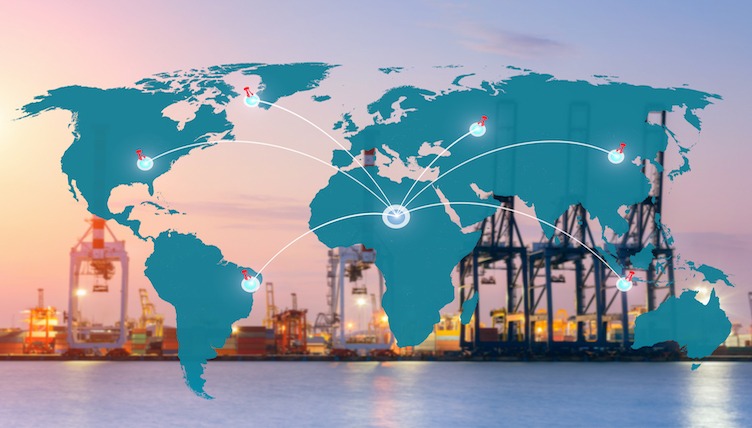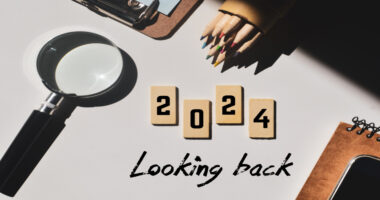Responsible Minerals Sourcing: Best Practices
Responsible sourcing for minerals from conflict-ridden areas is an important consideration in many industries, particularly the electronics and computer industries, but it is also an issue in the pharmaceutical and chemical industries where precious or rare-earth metals can be used in production. Several private and public initiatives are underway to facilitate companies in minerals sourcing.
Earlier this month in April 2018, the Responsible Minerals Initiative and the Global Reporting Initiative launched a project to help improve companies’ minerals sourcing due diligence and impact reporting by providing reporting resources and tools based on internationally recognized frameworks. Also, the Organisation for Economic Co-operation and Development (OECD) held a forum of more than 700 stakeholders last week in April 2018 to review and discuss implementation of an OECD guidance for responsible minerals sourcing.
Inside the Responsible Minerals Initiative
One group focused on best practices for responsible minerals sourcing is the Responsible Minerals Initiative (RMI), which was founded in 2008 to serve as a resource for companies from a range of industries addressing responsible mineral-sourcing issues in their supply chains. It consists of more than 350 companies and associations from 10 different industries, including the pharmaceutical industry. Pharmaceutical companies in the RMI include Baxter Healthcare, Johnson & Johnson, Merck & Co., and Pfizer. RMI collaborates with other complementary programs and initiatives and also holds an annual Responsible Minerals Initiative Conference and Members Meeting, which brings together hundreds of representatives from industry, government, and civil society for updates, in-depth discussions and guidance on best practices on responsible mineral sourcing.
Earlier this month in April 2018, RMI and the Global Reporting Initiative (GRI), an independent international organization focused on sustainability reporting, announced a project to help improve companies’ minerals-sourcing due diligence and impact reporting by providing reporting resources and tools based on internationally recognized frameworks. The project aims to provide the reporting community with a consolidated reporting resource based on existing internationally recognized tools and frameworks, such as the Organisation for Economic Co-operation and Development (OECD) Due Diligence Guidance for Responsible Supply Chains of Minerals from Conflict-Affected and High-Risk Areas. The outcomes can support companies to improve regulatory compliance and further enable companies to make informed decisions about potential conflict minerals in their supply chains.
“Increasingly, governments and other stakeholders recognize the need to prevent the extraction and trade of minerals with significant adverse impacts, including serious human-rights abuses and conflict,” said RMI and GRI in commenting on the new collaboration. “The increased attention has prompted many companies to establish due-diligence management systems and publicly report on their practices. Meaningful and comparable data help companies identify their gaps, and promote accountability and transparency in the minerals supply chain. However, despite international guidance and regulations, public reporting by companies remains limited, and the quality and comparability of existing reports presents opportunities for improvement.”
After an inception phase, in which the RMI and GRI conducted research to understand stakeholder expectations and define the landscape and urgency of the issue, the project is now entering Phase 2, the Corporate Leadership Group. In this phase, the RMI and GRI will invite companies to discuss research findings from Phase 1, to develop a common understanding how existing tools and frameworks serve companies, discuss best practices and how identified gaps can be addressed with additional reporting resources on responsible minerals sourcing. Based on the outcome of Phase 2, the RMI and GRI will develop a consolidated reporting resource (i.e., guidance) for responsible minerals sourcing reporting, and inform the Global Sustainability Standards Board (GSSB), the body in charge of developing and approving GRI standards.
The overall project was scheduled for 15 months. The inception phase (Phase I) has occurred between January 2018 and April 2018. Phase 2, the Corporate Leadership Group, will occur between April 2018 and December 2018. The third and final phase in which RMI and GRI will develop a responsible mineral sourcing for review by the GSSB will occur in early 2019.
RMI and GRI are conducting a series of labs to gain stakeholder input from the Corporate Leadership Group. The Corporate Leadership Group includes practitioners from corporations that: (1) work for a company that is an RMI member; and (2) that have at least three years of sustainability reporting experience and extensive knowledge of responsible minerals sourcing disclosures. RMI and GRI kicked off the second phase of the project, the Corporate Leadership Group, earlier this month on April 20, 2018 at the OECD 12th Forum on Responsible Mineral Supply Chains, which was held in Paris. The second lab for the project will be online on June 14, 2018 to address key common challenges and best practices. The third lab, also online on September 13, 2018, will be on common challenges, and pending research, possibly on stakeholder expectations and companies’ disclosures and how to fill the gaps. The fourth lab will be at the Responsible Business Alliance & Responsible Mineral Initiative Annual Conference 2018, which will be in Santa Clara, California from October 31 to November 2, 2018. This lab will address reporting on conflict minerals to discuss common best practices and consolidated simplified reporting guidance.
Inside the OECD Forum on Responsible Mineral Supply Chains
The OECD 12th Forum on Responsible Mineral Supply Chains was held April 17 to April 20, 2018 in Paris. It provided the opportunity to review and discuss implementation of the OECD Due Diligence Guidance for Minerals and other initiatives to enable responsible mineral production and sourcing. More than 700 stakeholders came together to discuss drivers for responsible sourcing across various minerals, alignment of industry programs, the OECD portal for supply-chain risk information, government monitoring of the OECD guidance uptake and promotion, company risk mitigation and reporting, the role of commodity traders and country-level implementation progress in India, Europe, and West Africa.
A key part of the OECD’s efforts are for the OECD Due Diligence Guidance for Responsible Supply Chains of Minerals from Conflict-Affected and High-Risk Areas, which provides detailed recommendations to help companies respect human rights and avoid contributing to conflict through their mineral purchasing decisions and practices. The OECD guidance is for use by any company potentially sourcing minerals or metals from conflict-affected and high-risk areas. In 2016, as part of the implementation of the OECD guidance, the OECD launched a project to develop and pilot test an assessment methodology for evaluating the extent to which industry programs align with the detailed recommendations of the OECD guidance. At the April 2018 OECD meeting, the findings of the pilot alignment assessment of five industry programs against the recommendations of the OECD guidance were presented. These five industry programs were: the Conflict Free Smelter Initiative (CFSI); ITRI Tin Supply Chain Initiative (iTSCi); London Bullion Market Association (LBMA); Responsible Jewellery Council (RJC); and the Dubai Multi Commodities Centre (DMCC).
Some key findings from the initial assessment found significant gaps between industry programs and the recommendations of the OECD guidance. The 2016 assessment of standards and implementation found that of the five participating industry programs, three were “not aligned” (DMCC, RJC and RMI) and two were “partially aligned” (iTSCi and LBMA). In the year following the initial 2016 assessment, the participating programs were given time to make changes to their standards to better align their requirements with the recommendations of the OECD guidance. Programs’ standards were re-assessed in early 2018. Following these changes, most of the programs’ standards now are in, or close to, full alignment with the recommendations of the OECD guidance, according to the OECD report. The report points out that for some of the programs that implement audits of smelters and refiners this has required fundamental reform and represents a “significant” achievement in a short space of time.
Going forward, the OECD report points out that the challenge now will be to ensure that the revised due-diligence requirements are effectively implemented across the industries covered by the program. Key considerations are: ensuring an adequate scope and depth of due diligence; building supplier capacity for due diligence; implementing risk-mitigation measure; strengthening independent audits as well as working beyond audits in risk assessment; and transparent reporting on due diligence activities.





